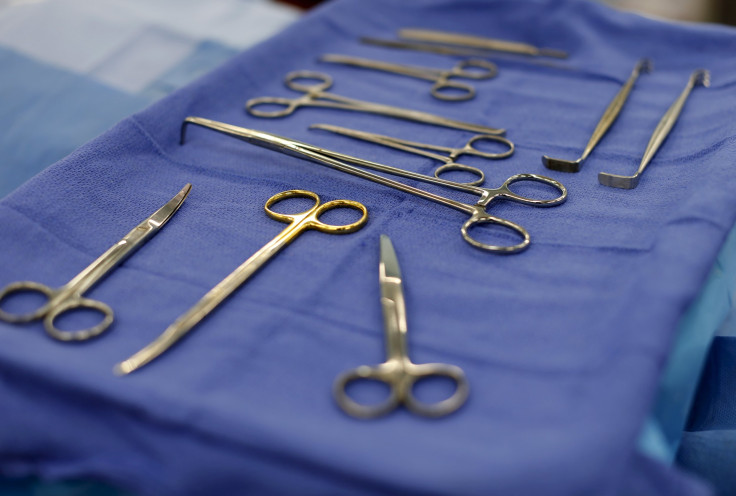Ovarian Cyst Symptoms: 132-Pound Benign Tumor Removed From Woman After 5-Hour Surgery

A 132-pound ovarian tumor was successfully removed from a woman after a five-hour surgery at a hospital in Connecticut. Doctors at Danbury Hospital said Thursday that the procedure was carried out after extensive planning by a team of 25 specialists.
The benign mucinous ovarian tumor was sitting on the 38-year-old woman's digestive tract. It was diagnosed after the woman reported rapid weight gain of about 10 pounds per week over a two-month period. Pathologists conducted genetic tests on the tumor to learn why it grew so quickly.
“I might expect to see a 25-pound ovarian tumor, but a 132-pound tumor is very rare,” Dr. Vaagn Andikyan, of Danbury Hospital, said in a statement. “When I met the patient, she was extremely malnourished because the tumor was sitting on her digestive tract, and she used a wheelchair because of the tumor’s weight."
While ovarian cysts are typically small and may not cause symptoms, patients can experience bloating, swelling, pelvic pain before or during the menstrual cycle, breast tenderness or nausea and vomiting.
Most ovarian cysts are benign and go away on their own without treatment. However, in rare cases, doctors may detect a cancerous cystic ovarian tumor. These types of tumors can arise from a number of factors, including infection, genetics, poor diet and stress.
Andikyan said the tumor blocking the digestive tract resulted in the patient becoming extremely malnourished. The team also reconstructed the patient's abdomen after removing excess skin that was stretched by the tumor.
“I’m so proud of Dr. Andikyan for his leadership and our entire team for having the courage to tackle this extraordinarily complex case. We were all determined to help our patient, even though this was the first time a case like this had come to Danbury Hospital. WCHN is a Network of exceptionally talented, compassionate clinical professionals that provide high-quality care no matter what the circumstances. We have the resources and the heart to overcome the most challenging cases,” said Dr. Linus T. Chuang, who was also involved in the surgery.
© Copyright IBTimes 2024. All rights reserved.











